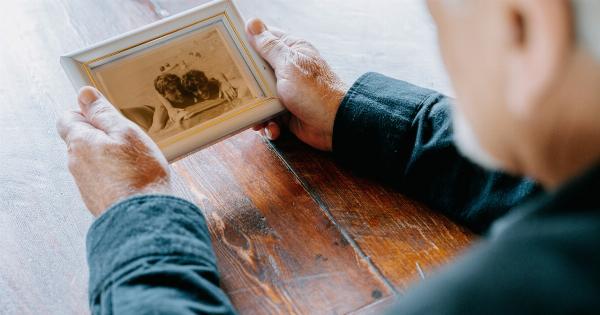Memories, the fragments of our past, are an integral part of our lives. They shape our identities, influence our decisions, and connect us to our loved ones.
However, as time passes, memories gradually fade away, becoming distant dreams that are imperfectly recalled. This article delves into the nature of memories, exploring why they fade and the impact it has on our lives.
What are Memories?
Memories are the neurological manifestations of past events that are stored in our brains. They are formed through a complex process that involves perception, encoding, storage, and retrieval.
Memories can be short-term or long-term, with the latter having the capacity to last a lifetime. They are not only composed of factual information but also emotional components that make them more vivid and impactful.
The Fading Process
Despite their initial vividness, memories tend to fade over time. This fading process occurs due to various factors, including neurobiological changes, interference from new memories, and the passage of time itself.
As memories are retrieved and reconsolidated, they become susceptible to alterations and degradation. Details are lost, and the emotional intensity associated with the memory diminishes, leading to a sense of distance from the past.
The Fallibility of Memory
Memories are not infallible recollections of the past. They can be influenced and distorted by a myriad of factors, including our own biases, beliefs, and external suggestions.
False memories can be implanted, leading individuals to recall events that never actually happened. This fallibility further contributes to the fading nature of memories, as the accuracy of the memory weakens over time.
The Role of Forgetting
Forgetting is a natural and necessary process for memory. It allows us to prioritize important information and filter out the irrelevant. While forgetting can be frustrating, it serves an essential purpose in our cognitive functioning.
The fading of memories helps us focus on the present and adapt to new experiences, preventing us from being overwhelmed by an excessive amount of memories.
The Impact on Identity
As memories fade, our sense of identity can be deeply affected. Our experiences shape who we are, and a diminishing recollection of these experiences can make us question our own narratives.
We may feel disconnected from our past selves, struggling to reconcile our present reality with the vague remnants of the past. The fading of memories can create a void that we desperately attempt to fill, sometimes leading to feelings of nostalgia or longing.
The Emotional Toll
Emotions are tightly intertwined with memories, and as memories fade, so too does the emotional resonance associated with them.
The intensity of joy, sadness, love, or fear that we once felt becomes diluted, leaving behind a mere echo of the original emotions. This emotional toll can be particularly challenging when dealing with the loss of loved ones or significant life events, as the memories that provide solace and connection fade into distant dreams.
Memory Preservation Techniques
While memories are bound to fade, there are techniques that can help slow down the process and preserve important aspects of our past.
Keeping a journal or a photo album, practicing mindfulness, and engaging in activities that stimulate cognitive function, such as puzzles or learning a new skill, can all contribute to memory retention. Additionally, maintaining social connections and engaging in reminiscence conversations can refresh and reinforce memories.
Accepting the Impermanence
Coming to terms with the fading nature of memories is a necessary part of embracing the present and focusing on the future. It allows us to let go of the past and live in the moment.
While it may be bittersweet to watch memories slip away, it also opens up space for new experiences and the creation of new memories. Accepting impermanence can be liberating, offering the opportunity for personal growth and living a fulfilling life free from the constraints of clinging to fading memories.
The Power of Reconstruction
Although memories may fade and change over time, the power of reconstruction allows us to fill in the gaps and recreate meaningful narratives.
Our ability to reinterpret the past and assign new meanings to faded memories can provide us with a sense of continuity and purpose. By focusing on the lessons learned and the emotional impact of the past, we can reshape our memories into a coherent storyline that aligns with our current values and aspirations.
Acknowledging the Beauty of Transience
While the fading of memories can be disheartening, it is important to recognize the beauty in transience. Just as the changing seasons bring forth new possibilities, the fading of memories allows us to continually evolve and grow.
It is a reminder that life is fluid, and every moment is a fleeting opportunity. Instead of desperately holding onto fading memories, we can appreciate their transient nature and cherish the present moment with the knowledge that it, too, will one day become a distant dream.
Conclusion
Memories are ephemeral fragments of our past, fading away like distant dreams. They shape our identities, influence our emotions, and connect us to our personal histories.
The gradual fading of memories occurs due to various factors, including neurobiological changes and interference from new experiences. While the loss of memories can be emotionally challenging, it is essential to accept the impermanence and embrace the present. By reconstructing the past and finding meaning in transience, we can create a sense of continuity and purpose in our lives.






























